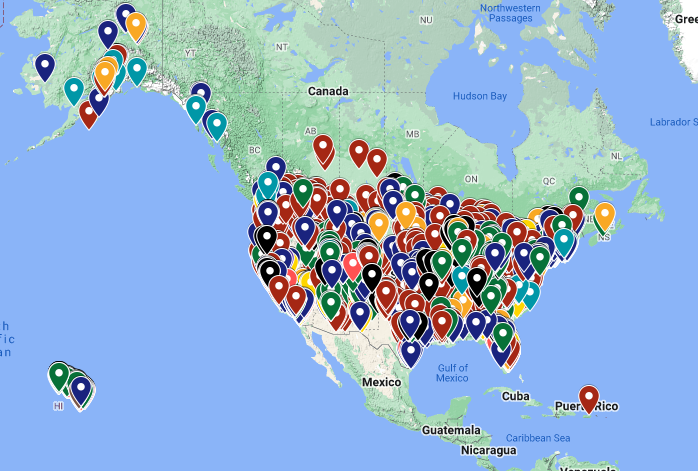Does Wyman's treat their wild blueberries with pesticides?
To support my work and start growing your own organic food at home, checkout the 180 open-pollinated, non-gmo, and pesticide-free heirloom seeds that I grow, pack, and carry here on my site. One of the favorite varieties that I offer are the Highbush Bluberry seeds.
Wyman’s was recently accused of aerial spraying pesticides on their wild blueberry farms. However, they stopped this practice close to twenty years ago. In 2005, the National Environmental Law Center served Wyman’s a 60-day Notice of Intent to Sue because Wyman’s aerial pesticide spraying violated the clean water act by polluting nearby rivers that were inhabited by endangered salmon.
Wyman first defended its use of aerial pesticides before announcing that they would cease the practice in April 2005 due to the financial pressure. Former Jasper Wyman & Sons’ CEO Ed Flanagan said “I had to make a dollars and cents decision. Going into a lawsuit like this was going to cost us a couple hundred thousand dollars." The former CEO also allegedly canvassed Maine farmers and food companies in an attempt to exempt agricultural spraying from the Clean Water Act, which failed. Flanagan currently sits on the Wyman Board of Directors.
Following the threat of lawsuit, Wyman’s switched to ground pesticide application using boom sprayers. According to the National Environmental Law Center, Wyman’s sprayed the fungicide Orbit, which contains the active ingredient Propiconazole. Orbit's EPA disclosure states that it is toxic to fish and shrimp. I found the State of Maine’s Department of Environmental Protection waste discharge renewal license for Jasper Wyman & Sons filed on October 6, 2022. The license stated that Wyman’s farmers may utilize insecticides such as Phosmet, fungicides like Chlorothalonil, Propiconazole, and other pesticides. While those listed chemicals are not USDA organic approved, it's unclear what fungicides, herbicides, and pesticides Wymans use.
There has been a surge of blueberry maggot infestations and spotted-wing drosophila, which makes pest control important for blueberry farmers. Wyman’s 2024 pesticide residue statement for their frozen berries states that they use Integrated Pest Management (IPM) to assure the minimum effective usage of chemicals on their wild blueberry and cranberry crop lands. Wyman’s washes all berries before freezing them which helps remove any potential residues from the exterior of the fruit. Wyman says their berries have no chemical residues exceeding the Maximum Residue Levels and, in most cases, have no detectable residues whatsoever. They don't release any data testing to confirm the claims.
Wyman’s should consider exclusively testing organic pesticides, which they may be doing, and provide more transparency about their practices. Since wild blueberries are a native no-till crop to much of the Northern US, Wyman’s avoids turning over soil and causing erosion. Wyman's wild blueberries are high in antioxidants and accessible for a large portion of the population that can’t find fresh berries elsewhere. Whether or not you decide to eat Wyman's wild blueberries is up to you!

Plant My Pesticide-Free Heirloom Seeds
I carry over 180 varieties of heirloom seed packets that are open-pollinated, non-gmo, pesticide-free, and breed true to type. Growing your own produce provides you with continual access to healthy and nutritious food.
Let customers speak for us
from 346 reviewsThis is the only place I buy seeds. Terrific company.

Germinated right away and already growing fast!

After just a couple of days, my seeds for Summer squash are popping out of the dirt, healthy and green! I’m thrilled with all the seeds I have purchased from My Health Forward. They all are happily growing! I will definitely order again!!

Ive already got seeds sprouting indoors. I ordered a lot of seeds and my order was fullfilled perfectly. Thank you!

I trust My Health Forward for my seed purchased. 100%

Seeds sprouted in 5 days or less super exciting stuff impeccable service

Thank you for all the work that you do in providing access to heirloom seeds and upholding food sovereignty and sustainability practices :)

Cannot wait to purchase more seeds, I’m a horticulturist and I’ve been looking for someone to purchase heirloom seeds from, and I finally found the place! No damage to the packaging whatsoever the package was sealed tight and they love how the seeds were packed so cute! Can’t wait to start sowing my seeds!

I’m beyond impressed with My Health Forward’s Heirloom “Small Cherry Red Tomato” Seeds! Within just 6 days of planting indoors in containers, I already have vibrant little plants springing up. These seeds germinated so much faster than any standard seeds I’ve tried before.
I’m thrilled to see such promising growth and can’t wait to get these plants ready for the upcoming spring season. If you're looking for high-quality seeds that deliver quick and reliable results, these are a must-have for your garden. Highly recommend!

It's only been a few days and my seeds are already starting to sprout! I can't wait to taste these delicious lettuce heads!

Can't wait and see the results! The seeds look healthy and the package arrived in a short time

Ordering was easy and reasonably priced. Will order again.


Find Local Farms
Find farms near you using my map with over 6,800 local farms, ranches, markets, and stands across the country.



